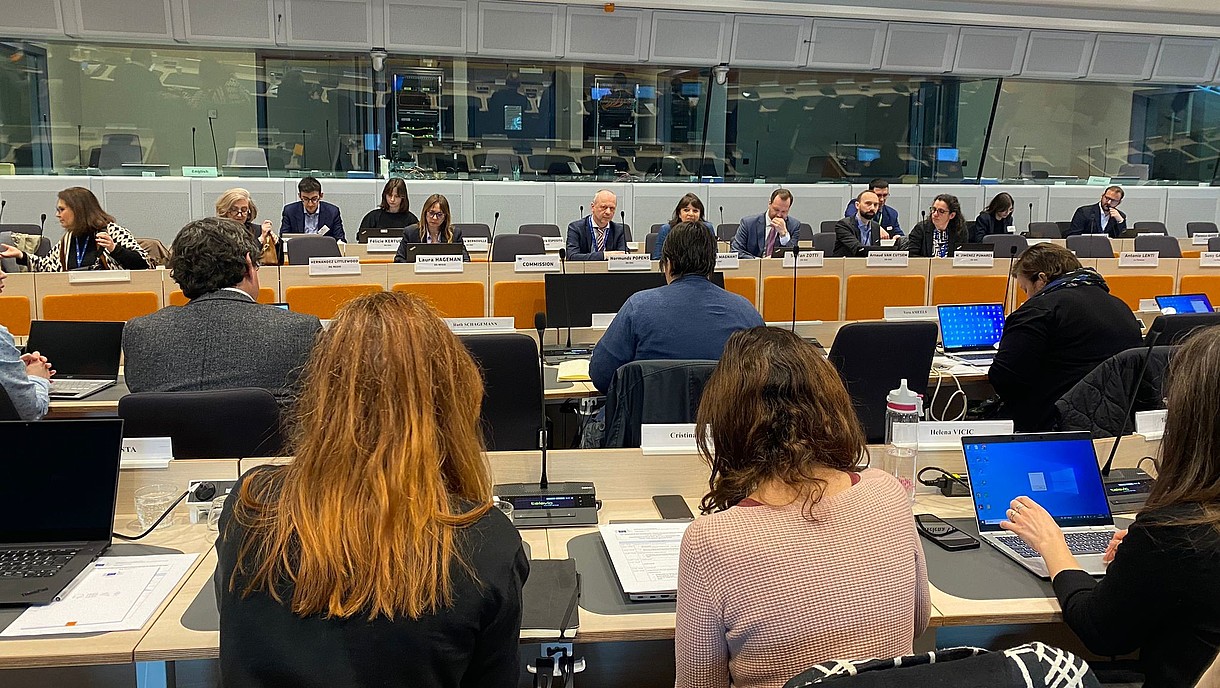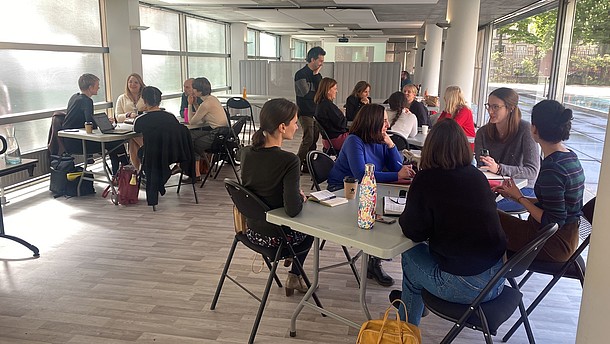The main discussion point of the meeting was cultural heritage support in regional and urban policies of the EU. Pagel also had the chance to present recommendations and outcomes of our recent international conference “Innovation and Integrity: Museums paving the way in an AI-driven society, where NEMO together with the co-organisers facilitated discussions with the sector and policy makers on the role, challenges and the potential of museums in an increasingly AI-driven society. Learn more in the event summary.
The conference on 20 March was closed with the presentation of three recommendations for policymakers aiming to support museums to tap their full potential and to find their role in the rapid development of artificial intelligence (AI):
- A political vision for museums and cultural heritage in an AI-driven society
Recognising the unique position of museums and cultural heritage as pillars of trust within society, it is imperative to integrate them into a regulatory framework. Artificial intelligence in museums needs to be addressed and shaped so that technological developments do not simply reshape museums from the outside. Collaborative efforts between governments, regulatory bodies, and museum professionals can ensure that museums play a pivotal role in the development of ethical practices related to emerging technologies. - Financial investments to apply AI successfully in the Public Cultural Domain
Financial resources must be allocated for infrastructure, equipment and highly qualified human resources, enhancing museums’ professional capacities.AI needs to source high-quality, interoperable data and properly described metadata. Copyright issues must be resolved. Museum professionals need adequate skills to perform these tasks, to keep pace with rapidly evolving AI capabilities and to address sector-specific concerns. Furthermore, standing commitments to support the cultural heritage sector should be expanded to ensure the quality and quantity of digitalisation required by Cultural Heritage Data Spaces and the European Collaborative Cultural Heritage Cloud. - Establishment of a European AI innovation hub for cultural heritage
To foster creativity, innovation and collaboration, to centralise expertise and knowledge and to face challenges for the sector associated with AI, there is a need for a dedicated competency centre in Europe. This space would serve as a hub to bring together expertise and practices, knowledge and resources in a network of and for professionals, ensuring digital innovation and development across the diverse European Cultural heritage sector - in alignment with the values of human-centred design, privacy, and open-source practices.




